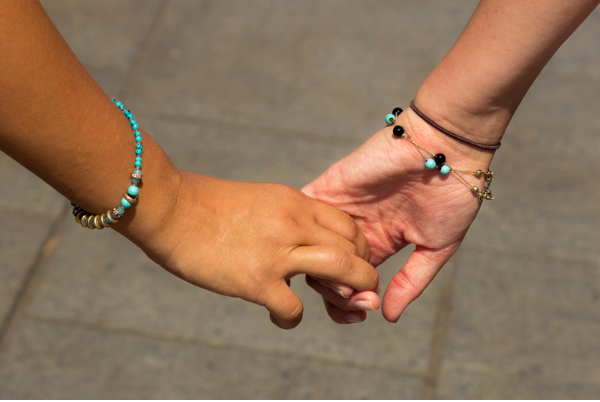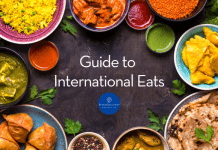
This August, I celebrate my 12th wedding anniversary. To some, that is the blink of an eye. For others, it is a milestone worthy of reaching. To me, it is both. (Spoiler alert… not everyone has legally had the right to be married as long as I have.)
I look back on my wedding photos and see the road laid out before all those young people gathered that day. There are days filled with joys and sorrows, laughter and tears.
Those photos capture a moment in time where I see how much has changed.
Some of those young people still celebrate anniversaries with us, and us with them. Others have gone their separate ways, and those pictures are an awkward reminder of “remember when those two were married?”
One of the biggest changes is that some of our friends in those photos can now marry as well, with the Supreme Court ruling on Obergerfell v. Hodges making same-sex marriage legal in 2015.
For years, we loved our friends, supported their relationships, and ultimately cheered them on while watching a live stream of their beautiful backyard wedding.
But for all the change I have seen in the past twelve years, nothing compares to the swift social change we have seen in the past 12-plus months.
We are hearing that loving and supporting are not enough. Being a “friend” isn’t necessarily enough. That action is needed, and an ally is what we should be. But what does that *mean*?
How do I be an ally when all this is new to me, and the stakes of hurting someone or getting it wrong are so high?
After some humbling, vulnerable, loving, and open conversations with LGBTQIA+ friends, along with black friends, and others, here is what I have to share with you, what I learned.
Take a moment.
There has been a reckoning within our country recently. On the surface, reckoning feels like a serious word and maybe even a little dramatic. But by definition, it is (1) a person’s viewpoint, opinion, or judgment and (2) an account or settlement. By those definitions, “reckoning” is appropriate for what our country has gone through; people are voicing their opinions, judgments are happening, and accountability is out there.
Before having conversations with friends to begin writing this article, I had a moment where I realized I could not write this alone. I would be writing from my viewpoint of what other people needed me to be.
What was my viewpoint?
What were my views?
I needed to know those things first so that I knew what to ask.
And then I had to take another moment to ask myself why I have that view. Why did I believe a certain way?
Listen
This was the loudest and most requested from everyone I talked to.
But what does that mean?
I found out it means to open my ears and shut my mouth. It means that my Type A personality has to take a back seat and not share what I think are common experiences.
It means that I listen to a black friend tell their story about feeling singled out without sharing a time when I felt singled out or alone. It means putting myself in their story to hear what feeling singled out means to them… and what it looks like to them. It means listening to a gay friend sharing their struggle. It means waiting until they are spent and offering compassion. It means that I validate their struggle and can say, “I see you struggling, and I am here.” It means giving positive body feedback, no judgment, and being present in the moment.
Stand Beside and Speak Up
When I first heard the cry to be an ally, I perceived it as overt actions like marches, confrontations, and big movements. Those things felt bigger than me and bigger than I was prepared for. The urge to get it *just right* was almost paralyzing me from any action at all. But across all the conversations I had with varying races, genders, and causes, they broke it down much simpler.
Stand beside them in what might be an easy situation; a party where there is an obvious majority/minority. See that another person might not be in an easy situation. Stand next to them in a hard conversation; sometimes, your presence is enough to stop problematic behavior. And when it’s not, a simple “I don’t agree” can be enough. Standing up at the voting booth. Speaking up in daily conversations when a “them” is not even present.
There are big and little ways to do it.
Ask Questions
I started this article and the process of writing it by asking questions. A very astute friend named why race/sexuality/gender – IT. ALL. feels so hard right now. She told me this:
“It is all so taut – everyone is pulling at what is important to them and taking whatever space they can get. We need to take the step forward, but we are forgetting the space to breathe and give room to grow together.”
I can tell you I let out a sigh when she said that. She gave us both room to grow together. My one question turned into thirty minutes of questions. She didn’t have an answer for all of them.
Everyone I spoke with about my first question, “what does an ally look like to you?” told me to come back with more when I had them, and our conversations ended. This isn’t an easy road; we travel through life and every day gives us something new to process. We learn from these new pieces of information, ideas, and experiences.
I am learning from asking questions about others people’s ideas and experiences.
Know your heart. Question your heart.
A little over three years ago, George Floyd was murdered. Over ten years ago, Tyler Clementi committed suicide. Those two lives should not have been lost for the reasons they did. I believe that with all my heart. I believe a lot of things that I have had to wrestle with. And mistakes I have made.
I used to say that I “didn’t see color.” My heart was in the right place, and I didn’t see a difference between equality, but I missed that the difference in experiences between my black friends and me shaped who they are. I used to think that a religious belief about a man marrying another man and getting a wedding cake was a grey area because we can’t tell someone what to believe.
But I missed that if enough people believe a certain way, what options do you have, and where do you go?
I don’t have the answers. I have a lot of questions. And I have Canion, Tasha, Monica, Russell, Zach, Jen, Michael, Diane, Danette, and countless others to thank for talking, challenging, questioning, answering, and explaining.
This doesn’t seem easy… but it is. They broke it down for us. Now it’s time to be an ally.














[…] Books are amazing tools for teaching our children about important topics like kindness, empathy, acceptance, and inclusion. […]